- Home
- entertainment
- news
- The terrifying true stories that inspired your favorite horror movies
The terrifying true stories that inspired your favorite horror movies
Gabbi Shaw

- Horror films have produced some of the most iconic figures in pop culture.
- But not all scary movies are completely fictional; some are actually based on real life.
Horror movies are reliably successful at the box office. They often have relatively low budgets, produce large returns at the box office, and can produce IP that will lead to sequels and spin-offs for years to come. Plus, when Halloween rolls around, costumes and masks provide another bump to a studio's bottom line.
But creating a completely original, compelling, and terrifying horror story can be challenging. That's why some of the most iconic and successful scary movies are based on things that actually happened in the real world.
For example, "The Conjuring" franchise is based on the case files of real paranormal investigators Lorraine and Ed Warren. In total, the films have made almost $2.4 billion at the box office.
These are the real stories and crimes that influenced some of the most classic horror films of all time, including "The Exorcist," "Nightmare on Elm Street," and "Jaws."
"The Conjuring" is about the Perron family and the traumatic experiences they're having in their new Rhode Island home.
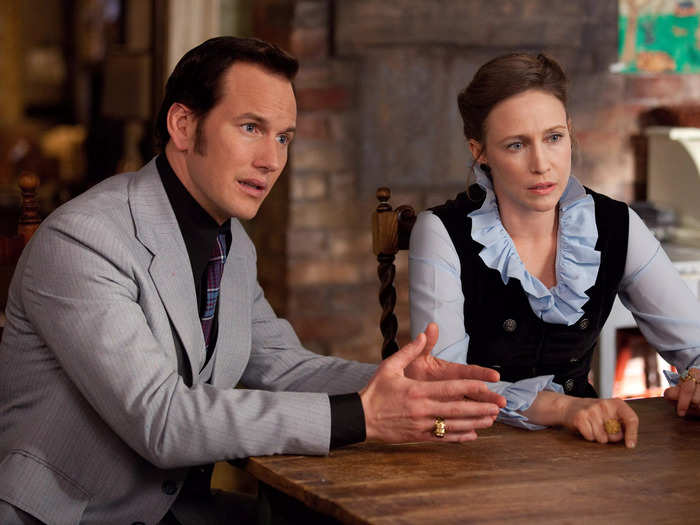
The Perrons (husband Roger, wife Carolyn, and their five daughters) moved into what was known as the Old Arnold Estate in 1971, The Providence Journal reported.
Almost immediately, the family reported paranormal activity, such as floating or moving furniture, doors opening and closing, disembodied sounds, and even being pushed, pulled, and hurt by unseen spirits.
Upon calling in paranormal investigators Ed and Lorraine Warren, they found that the property was haunted by various ghosts, but that one particularly malevolent spirit called Bathsheba was preying on them. Bathsheba, who lived on the property in the 1800s, had been a suspected Satanist and was charged with the violent murder of her first child.
However, while "The Conjuring" ends with the family moving out of their home, they actually remained in the "haunted" house for another nine years, leaving in 1980.
The home sold in 2022 for $1.5 million. The new owner almost immediately said she had experienced "paranormal activity."
"The Conjuring 2" is about a girl being possessed by a demon in London.
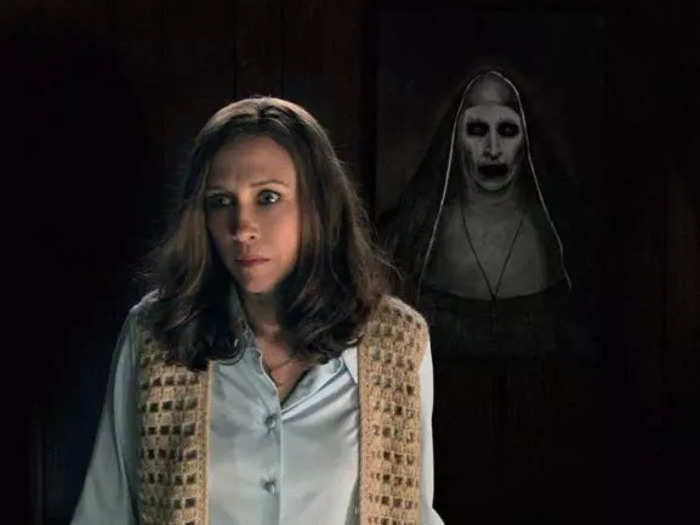
The Hodgson family reported experiencing unusual phenomena in their London home in August 1977, such as furniture flying through the air, and objects hurling toward witnesses, The Daily Mail reported.
Most famously, however, Janet, one of three Hodgson children, claimed she was being possessed by a man named Bill Wilkins — it was later confirmed that a man by that name did, in fact, live in the house and died there of a brain hemorrhage, People reported.
While Janet later said that around "2%" of the haunting was made up, she maintains that the Enfield Poltergeist was real.
You can listen to audio of her while she was claims she was possessed to make up your own mind.
The third film is "The Conjuring: The Devil Made Me Do It," which is about the real trial of Arne Cheyenne Johnson.
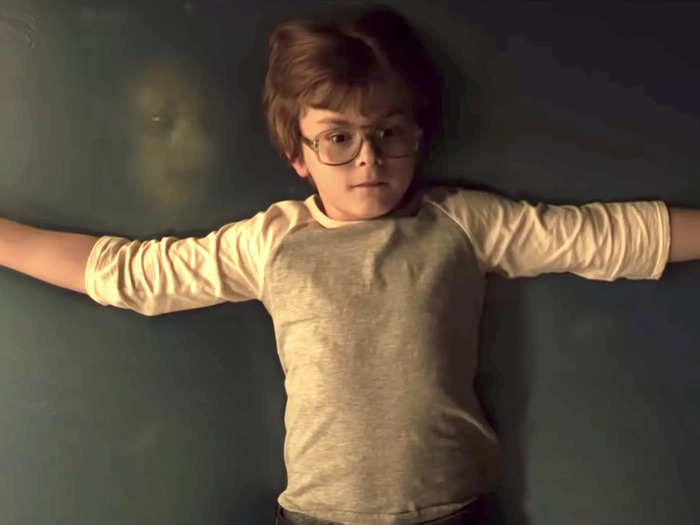
In the third "Conjuring" film, Ed and Lorraine are tasked with helping a young man, Arne, who murdered his landlord after getting possessed by a demon, which Ed witnessed. In his trial, the Warrens supported Arne using the defense of demonic possession, a first in the United States.
This is based on the real case of 19-year-old Johnson, who really did murder his landlord in 1981 and subsequently claimed he was innocent because he'd been possessed, as reported at the time by The New York Times.
Johnson (and the Warrens) claimed that a demon was exorcised from the body of 11-year-old David Glatzel and then moved to Johnson. His girlfriend claimed she heard Johnson challenge the demon itself to leave Glatzel and possess him instead.
A few weeks after Johnson's encounter with Warrens and the Glatzels, he stabbed his landlord to death, and then claimed he had no memory of the crime and was possessed.
In reality, this defense was rejected, his lawyers then pivoted toward the self-defense strategy, and he was convicted of manslaughter. He served five years in prison.
"Annabelle," "Annabelle: Creation," and "Annabelle Comes Home" tell the story of an evil doll that terrorizes her owner.
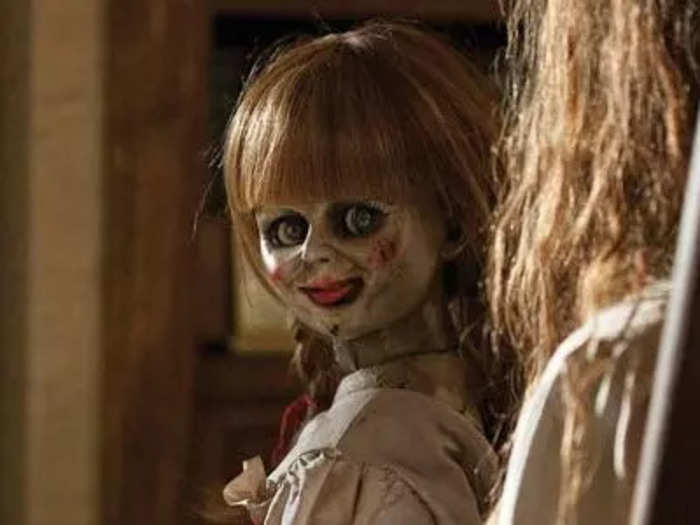
Annabelle is a doll believed to be imbued with an evil spirit. While the real-life Raggedy Ann doll (which can be viewed at the Warrens' Occult Museum in Monroe, Connecticut) is much less creepy-looking than her movie counterpart, she is said to have terrorized her owner.
According to The New Haven Register, the story of the doll begins in 1970, when a nurse received it as a birthday gift from her mother. She soon began to notice that the doll would change positions by itself. She then started finding creepy notes with messages like "Help me" written on them. And she claimed she once found the doll leaking blood.
Once again, the Warrens were contacted for help. According to them, the doll wasn't possessed, but it was being manipulated by a spirit. They cleansed the home and took the doll to their museum, where it remains to this day.
"The Amityville Horror" connects the murders of the DeFeo family with a demonic presence in the house.
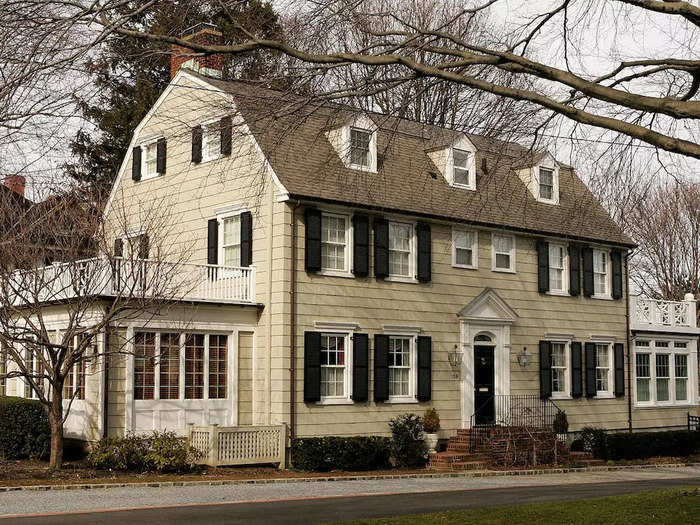
On November 13, 1974, at 3:15 a.m., Ronald DeFeo Jr. stole his father's shotgun and murdered his family in their home in Amityville, New York, claiming that voices in the house made him do it, according to PIX11.
He was later convicted and sentenced to 25 years to life in prison. He died in 2021.
A year after the murders, in 1975, the Lutz family moved into the home and claimed to experience paranormal activity almost immediately, per ABC News.
George — the patriarch of the Lutz family — claimed to wake up frequently at 3:15 a.m. (the time of the murders) and hear gunshots. His daughter Missy gained an imaginary friend Jodie, which was also the name of a DeFeo daughter. Missy says she did not know anything about the murders at the time.
The Lutz family fled their home only 28 days after moving in, sparking one of the greatest debates in paranormal history: Is the Amityville home haunted?
"The Haunting in Connecticut" is about a family who move into a former funeral home, which turns out to be haunted.
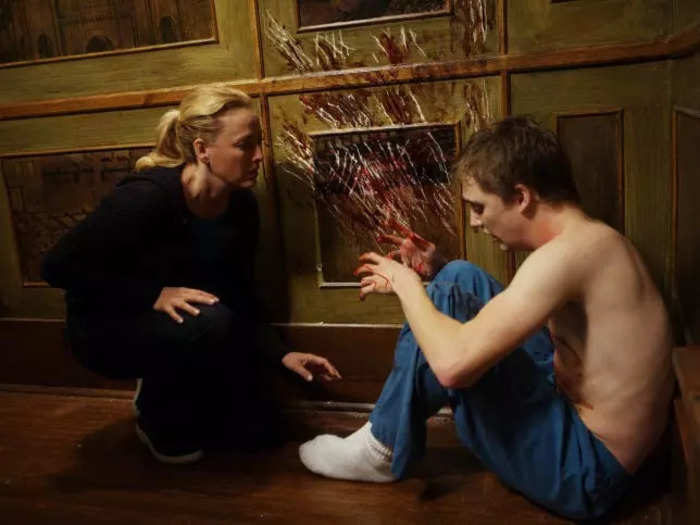
"The Haunting in Connecticut" is based on the plight of the Snedeker family. Their name was changed to Campbell in the movie.
NBC Connecticut reported the Snedekers moved into a new home in the '80s to be closer to the University of Connecticut's hospital, since their son Phillip was undergoing treatment for cancer. The family soon realized that the house they had moved into used to be a funeral home.
According to his mother, Carmen, Phillip quickly became withdrawn and angry and started seeing a ghostly man who would tell him to lash out.
He was later committed due to a schizophrenia diagnosis. But after Phillip left, things reportedly got a lot worse for the rest of the family.
They eventually called in a priest — as well as the Warrens — to perform an exorcism.
"Veronica" is about a Spanish teenager who used an Ouija board to contact a dead loved one with disastrous consequences.
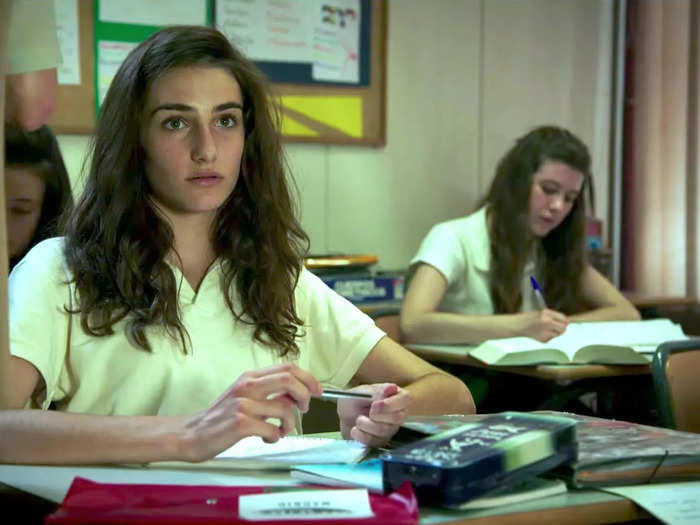
The film is based on a real Spanish teenager whose death was never solved, as Business Insider previously wrote.
In 1992, a student named Estefania Gutierrez performed a "makeshift séance" at her high school. A few months later, she died in the hospital after experiencing seizures and claiming to see shadowy figures.
The story gets even stranger: A year after Gutierrez died, her parents called the police because they were experiencing paranormal activity, similar to the shadowy figures their daughter had reported.
The police were skeptical until they, too, heard disembodied noises. According to Newsweek, the official report called the home "a situation of mystery and rarity."
"The Strangers" is a terrifying look into the mindset of monsters who commit crimes just because they can.
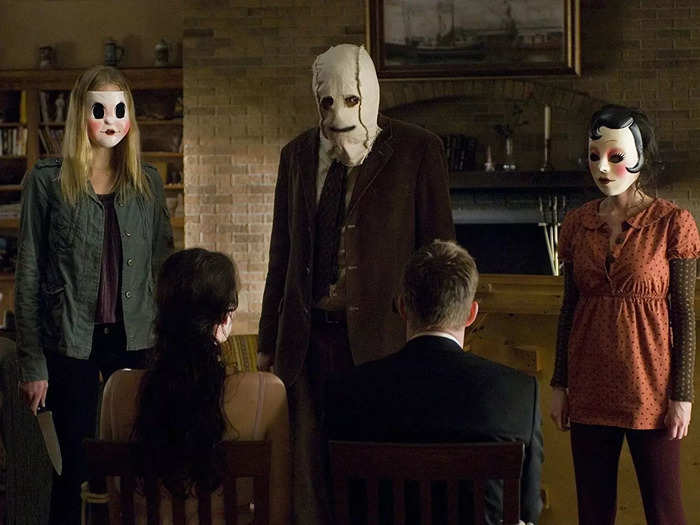
The poster for "The Strangers" claims that the film was "inspired by true events," though it's more of an amalgam of a few terrifying true tales.
Director Bryan Bertino said he drew his main inspiration from an experience from his childhood, according to the film's production notes.
"As a kid, I lived in a house on a street in the middle of nowhere. One night, while our parents were out, somebody knocked on the front door and my little sister answered it. At the door were some people asking for somebody that didn't live there. We later found out that these people were knocking on doors in the area and, if no one was home, breaking into the houses," said Bertino.
Fans of the film have also compared it to the Manson murders and the unsolved murders of the Sharp family, known as the Keddie Cabin Murders.
"The Exorcist," one of the most beloved horror films of all time, is about a preteen girl who becomes possessed by a demon.
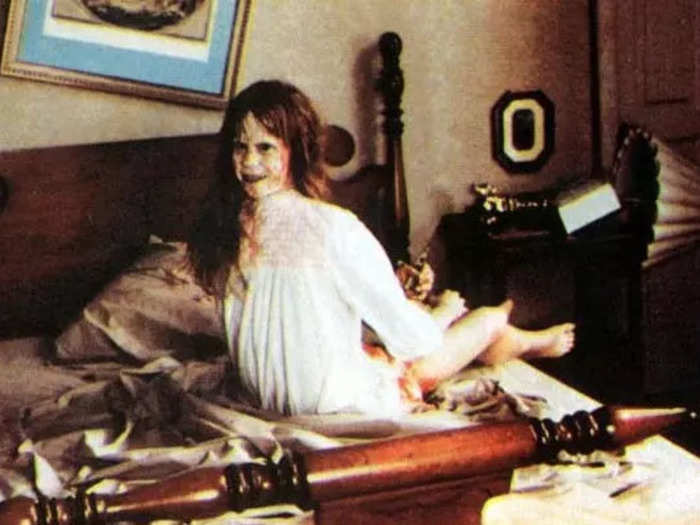
"The Exorcist," is based on the story of a 13-year-old boy known as Roland Doe, who began exhibiting strange behavior in 1949, according to The New York Post. His family reported furniture moving on its own, scratches all over Doe's body, and loud, disembodied voices.
After a cross-country move and no change in Doe's strange behavior, his family enlisted the help of the Catholic church. One of the priests involved in the Doe case, Father Raymond Bishop, kept a diary, per The Daily Mail.
One of his entries stated, "At midnight, the Fathers planned to give (Roland) Holy Communion, but Satan would have no part of it. Even while the institution of the Blessed Sacrament was explained, his body was badly scratched and branded. The word 'HELLO' was printed on his chest and thigh."
Eventually, after multiple attempts, the "demon" was exorcised, and Doe returned to normal. He never spoke of the incident publicly.
His real identity was revealed by The Skeptical Inquirer in 2021: Ronald E. Hunkeler. Hunkeler died in 2020 at the age of 86. Before that, he'd been an engineer at NASA and, according to The New York Post, was always afraid his colleagues would find out about his past.
"The Exorcism of Emily Rose" is also about a girl possessed by a demon.
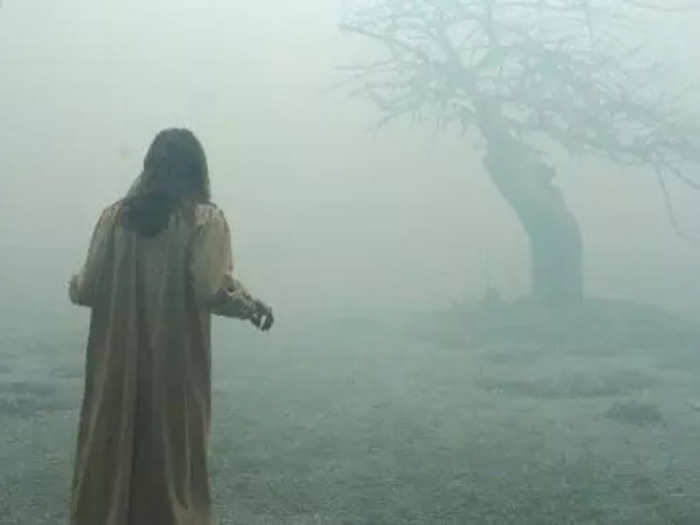
The story of Anneliese Michel, a young German woman — renamed Emily Rose in the film — is tragic.
When Michel was a teenager, she experienced the first symptoms of her alleged possession. She was diagnosed with epilepsy, and given medication to help treat the disease, according to The Washington Post.
But the meds didn't help. Michel continued to have seizures, and she began to claim she was having visions and hearing voices telling her she was a sinner. She became depressed and turned to religion: At her peak, she was genuflecting (kneeling) 600 times a day, eventually rupturing her knee ligaments.
By the time Michel was 23, she had been treated with dozens of different medications (nothing helped), and had undergone 67 exorcisms in 10 months, the Post reported.
She eventually stopped eating and died of starvation in 1976. She weighed 68 pounds.
Her parents and two of her priests were later found guilty of negligent homicide for allowing her to starve, per the German outlet DW.
"The Texas Chain Saw Massacre" is about a group of hitchhikers who pick the wrong family to catch a ride from — they end up being cannibals.
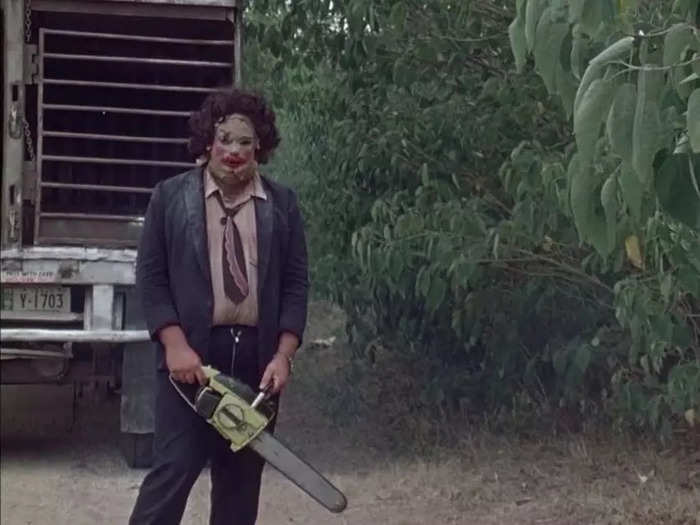
The main villain of "The Texas Chain Saw Massacre" is Leatherface, who was based on real-life killer Ed Gein.
Gein, who grew up in La Crosse, Wisconsin, in the early 1900s, was obsessed with his mother; he rarely interacted with anyone besides her, and when she died, he spiraled, per Encyclopedia Britannica.
Known as "the Butcher of Plainfield," he is suspected to have killed several victims, but, more disturbingly, he took to robbing the graves of recently buried women.
He used their body parts to create something like a woman suit that he wore, pretending to be his mother, according to the book "Deviant." He also had lamps, belts, and bowls made out of human body parts.
Gein's story also partly inspired "Psycho" and "The Silence of the Lambs."
"Poltergeist" tells the story of a family who buys a haunted house built on top of a Native American burial ground.
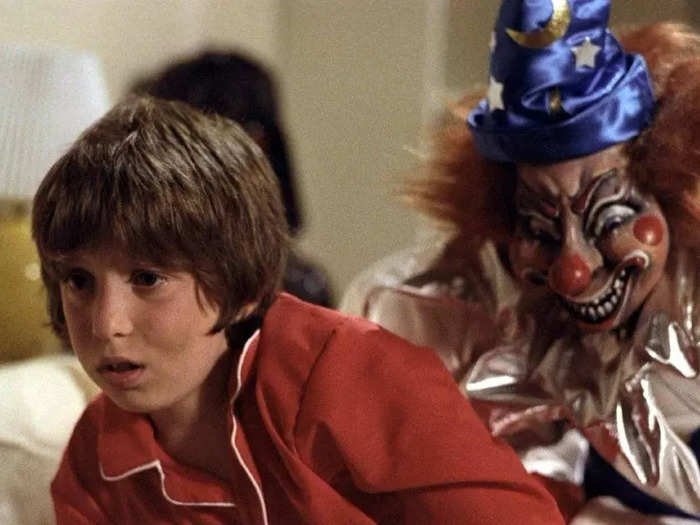
The plot of 1982 classic "Poltergeist" was based on the Hermann family of Long Island, New York, who claimed to be haunted by a poltergeist that made objects fly through their home, according to Life Magazine.
The Hermann family eventually moved away, but they maintained the house was haunted.
"When a Stranger Calls" is about a babysitter who's being terrorized by a mysterious caller inside the house with her.
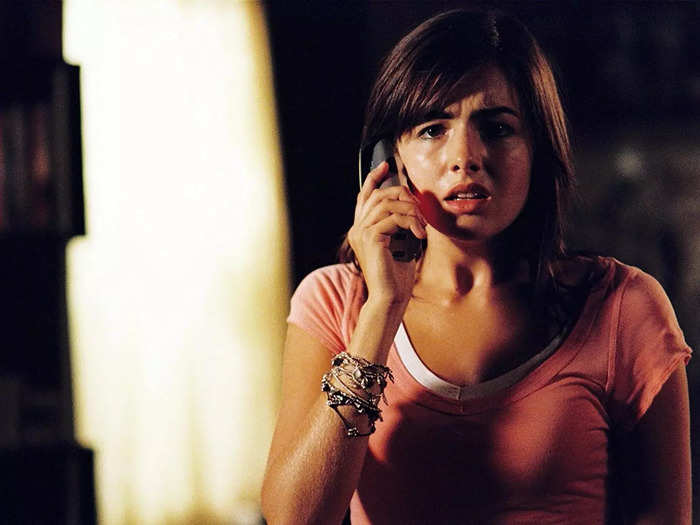
The film is based on the real unsolved murder of 13-year-old Janett Christman in 1950.
As the Columbia Daily Tribune wrote, Christman was babysitting 3-year-old Greg Romack when she called the Columbia Police Department and told them to "come quick," but she hung up before the police could trace her call.
When the Romacks returned home, they discovered Christman's body in a pool of blood. She had been raped and strangled with a cord. The police eventually ruled that it had been an "inside job" — the killer knew the house and its layout well.
"Dead Ringers" explores the mysterious deaths of a pair of co-dependent twin brothers.

The Marcus twins shared a gynecology practice, an apartment in New York City, a house in the Hamptons — and eventually their deaths.
Apparently, 45-year-old Stewart and Cyril Marcus were addicted to barbiturates; when their decomposing bodies were found, their mysterious deaths were first ruled as being caused by an overdose, then by withdrawal (they may have been attempting to wean themselves off the drugs), The New York Times wrote.
The medical examiner told The New York Times that Cyril outlived his brother by a couple of days, and continued to live in the apartment before eventually dying himself.
The film received a TV reboot on Prime Video in 2023, starring Rachel Weisz.
"Jaws" is the story of a small beachside town that's being terrorized by a vengeful shark.
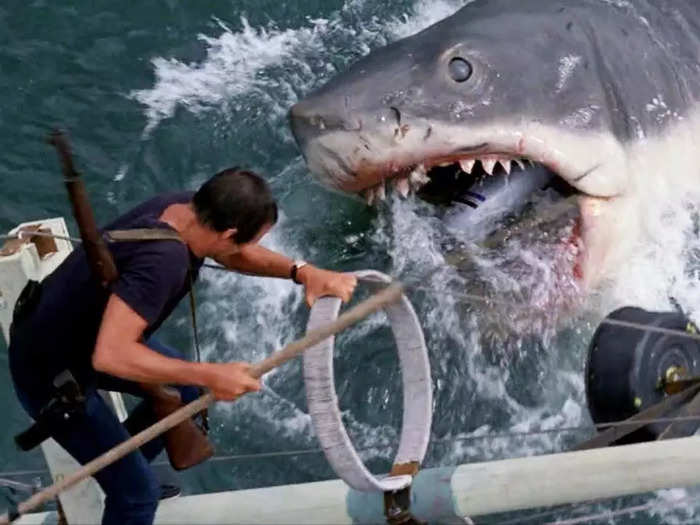
The terrifying tale of the most famous great white shark ever is based upon a string of shark attacks on the Jersey Shore in 1916.
According to Smithsonian Magazine, 25-year-old Charles Vansant bled to death from a bite in Beach Haven, New Jersey. Five days later — and 45 miles north — a bellhop from Spring Lake also bled to death from a shark bite.
The story only gets more terrifying. The same shark then swam 30 miles north and 10 miles inland, killing both a boy and a man trying to save the boy in a creek, NJ.com wrote.
Finally, the fifth victim was attacked 30 minutes later in the same creek — he survived.
According to NJ.com, George Burgess, an ichthyologist (a scientist who concentrates on the study of fish), called it the "most unique set of shark attacks that have ever occurred. "
"The Girl Next Door" is about a boy who tries to save his neighbor from her twisted adopted family.
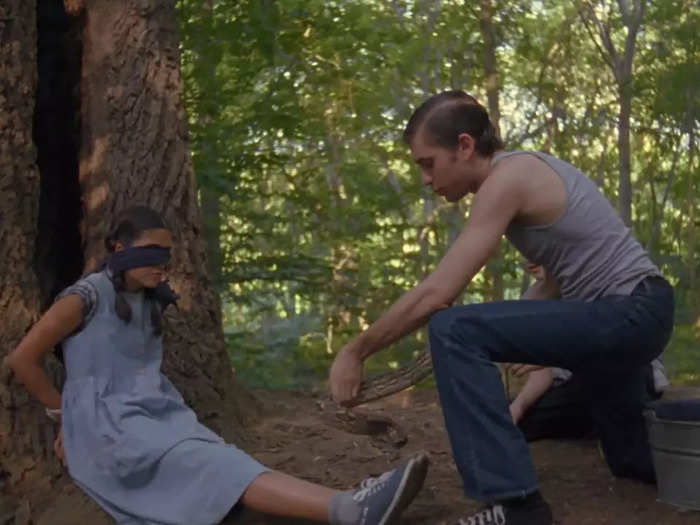
The murder of Sylvia Likens is known as the "worst crime in Indiana history," the Indy Star reported. Likens was just 16 when she was found dead in the basement of her temporary home.
Her carnival-worker parents left Sylvia and her sister in the care of Gertrude Baniszewski, a mother of seven, paying Baniszewski by the week.
Three months later, on October 26, 1965, police found Sylvia's emaciated corpse, apparently covered in hundreds of wounds, Indianapolis Monthly wrote. Baniszewski — with the help of some of her children and a few neighborhood kids — had tortured the girl to death.
Baniszewski was sentenced to 21 years in prison, but she was eventually released on parole. The rest of the children who were involved served between two and seven years.
"The Possession" is the tale of a family being tortured by a demon inside a dybbuk box.
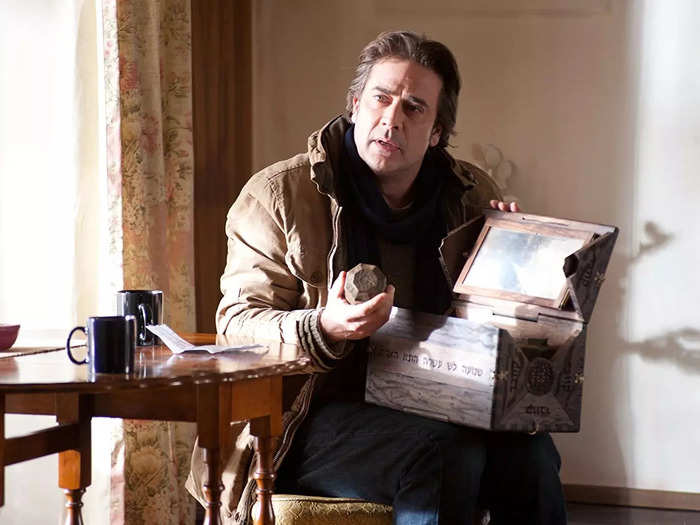
James Haxton posted the real dybbuk box on eBay with a chilling description of events that befell him after he bought it at an estate sale, wrote My San Antonio.
He claimed that he bought the box for his mom's birthday and that she almost instantaneously had a stroke upon receiving it, Riverfront Times reported.
He also claimed that the final straw that inspired him to get rid of the box was when his sister, brother, and brother's wife all stayed over, and each one reported having the same exact nightmare, according to a reposting of the original eBay listing.
You might be wondering what exactly a dybbuk is. According to Encyclopedia Britannica, it's a "disembodied human spirit that, because of former sins, wanders restlessly until it finds a haven in the body of a living person" that originated in Jewish folklore.
"The Rite" is based upon the life of a real priest, Father Gary Thomas, and his time at the Vatican while training to become an exorcist.
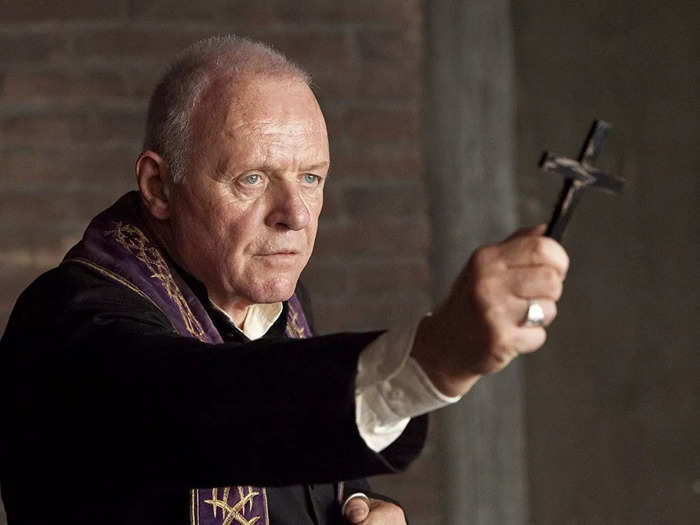
"The Rite" is based on the life of Father Gary Thomas, a priest who is one of 14 Vatican-certified exorcists who works in the US, the Los Angeles Times reported. Thomas told the Times he's exorcised the demons from five people, and that he receives multiple requests for exorcisms daily.
Father Thomas trained for three months in Rome to become a certified exorcist, completing his training in 2005, The Telegraph wrote.
Similarly, the 2023 film "The Pope's Exorcist" is based on the life of real-life priest Father Gabriele Amorth.
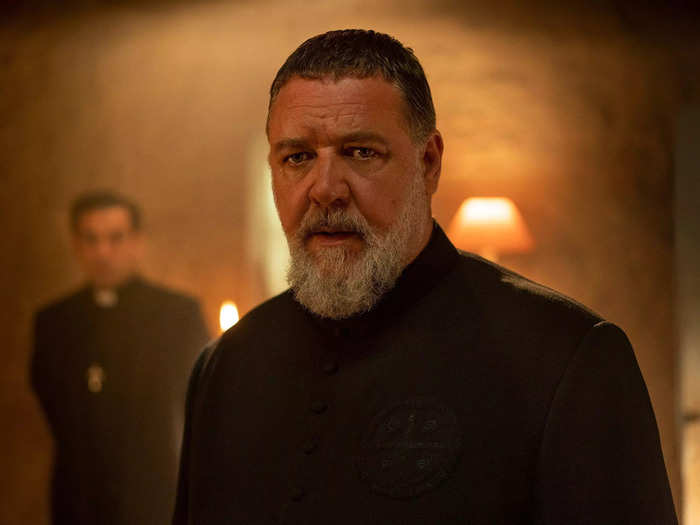
Russell Crowe played Amorth in the 2023 film "The Pope's Exorcist," which was based on Amorth's memoirs, "An Exorcist Tells His Story" and "An Exorcist: More Stories."
Smithsonian Magazine wrote that Amorth said he'd performed over 100,000 exorcisms before his death in 2016. He was still performing them that year — and he even let "The Exorcist" director William Friedkin observe one.
Friedkin, who died just a few months after the film's release, wrote about the experience in Vanity Fair. "Out of a hundred people who seek my help," Amorth told Friedkin, "one or two at the most may be possessed."
"Wolf Creek" is about three backpackers in the Australian Outback who unknowingly hitch a ride from a sadistic murderer.
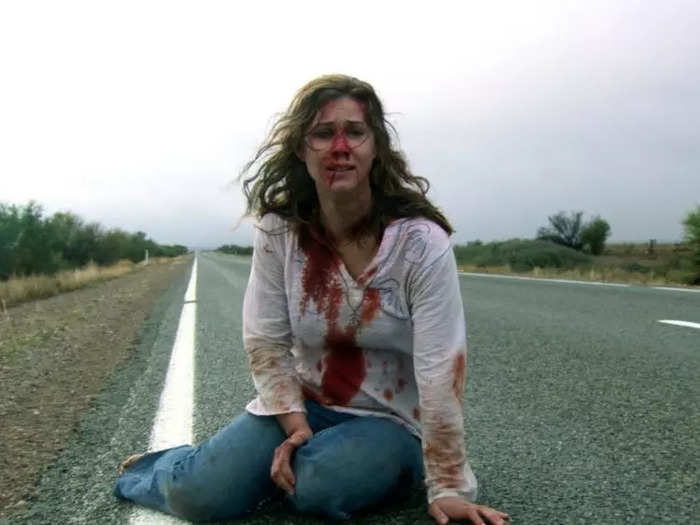
The horrifying tale of the backpackers in "Wolf Creek" is based on a real string of murders in Australia's Belanglo State Forest in the '90s at the hands of Ivan Milat, aka "the Backpacker Killer."
Milat maintained that he was innocent until his death in 2019, The Daily Mail wrote, but was convicted for torturing and killing at least seven people, all backpackers and hitchhikers. Some think that he killed even more.
"Eaten Alive" is about the owner of a Texas hotel who feeds people to his pet crocodile.
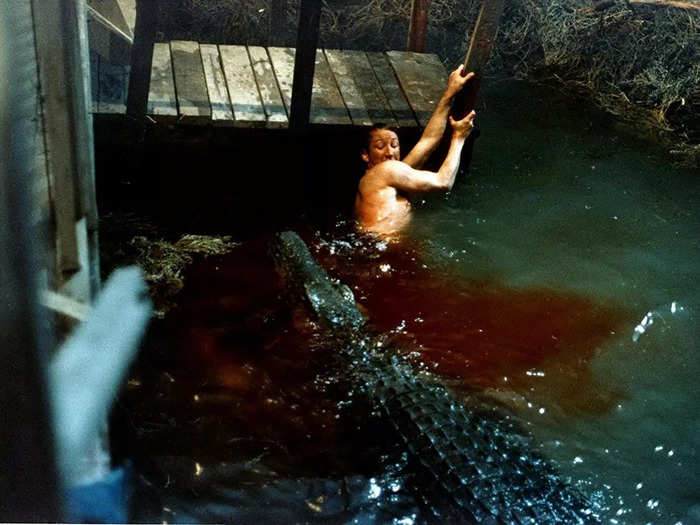
Eccentric bootlegger Joe Ball owned a Texas bar called the Sociable Inn in the early 1900s. He also kept multiple alligators in an enclosure near the saloon.
A known ladies' man, Ball had relations with various waitresses, bartenders, and hostesses — three of whom went missing. Turns out, Ball had murdered two of them, reported Texas Monthly.
Many believe he then fed them to his pet alligators, though there was never any evidence — his keeping them as pets was enough to cause concern and create rumors.
When the police came around for questioning in 1938, however, he shot himself in the heart, the San Antonio Express-News wrote.
"Open Water" tells the harrowing tale of a couple fighting to stay alive after their boat leaves them behind in the middle of the ocean.
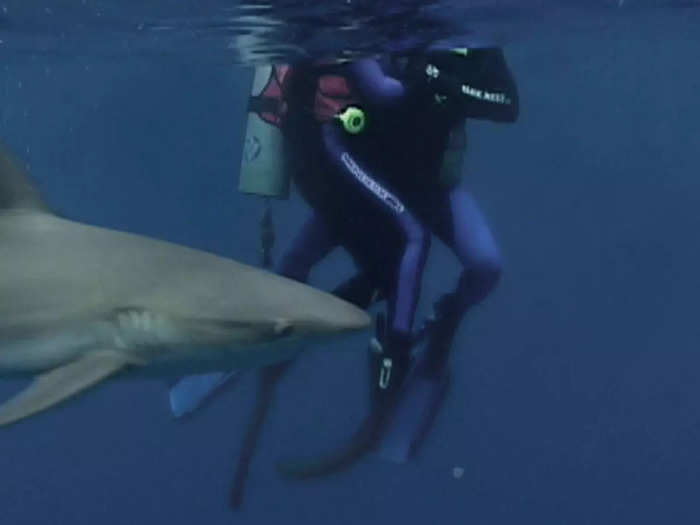
Tom and Eileen Lonergan were scuba diving at the Great Barrier Reef in Australia in 1998 when they were left behind by their boat after someone messed up the head count. They were never heard from again, The Independent wrote.
According to the outlet, the diving company didn't even realize they were missing until two days later, when their passports and other personal effects were found on the boat.
Months after their disappearance, Tom's dive slate was found 100 miles north of their original disappearance. He had written "We have been abandoned" by the diving company, adding "Help!"
Their dive jackets and one of Eileen's fins eventually washed ashore, but there were no signs of a shark attack or any other violent activity.
Some believe they were eaten by sharks, while others maintain that it was a murder-suicide pact.
Their bodies were never found.
"A Nightmare On Elm Street" is best known for bringing Freddy Krueger, a serial killer who murders people in their dreams, into the mainstream.
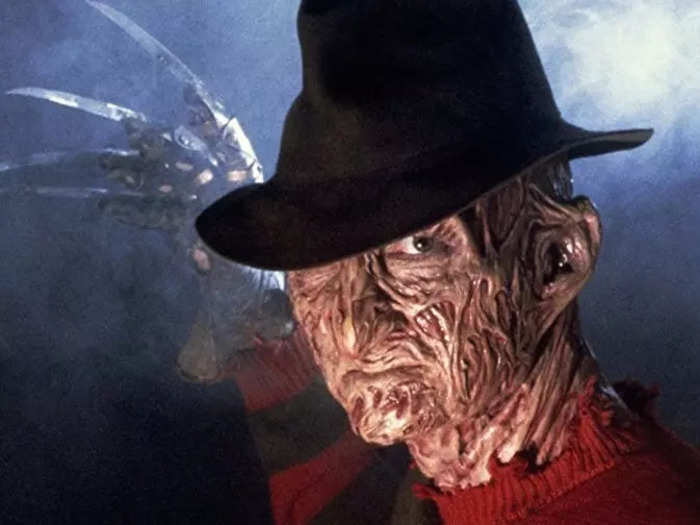
The idea for this iconic franchise came from a Los Angeles Times article that Wes Craven, the film's writer and director, read about a boy who was too terrified to sleep after surviving the Killing Fields in Cambodia.
Here's what Craven said to Vulture about his inspiration: "He told his parents he was afraid that if he slept, the thing chasing him would get him, so he tried to stay awake for days at a time."
Craven continued, "When he finally fell asleep, his parents thought this crisis was over. Then they heard screams in the middle of the night. By the time they got to him, he was dead. He died in the middle of a nightmare. Here was a youngster having a vision of a horror that everyone older was denying. That became the central line of 'Nightmare on Elm Street.'"
Popular Right Now
Popular Keywords
Advertisement